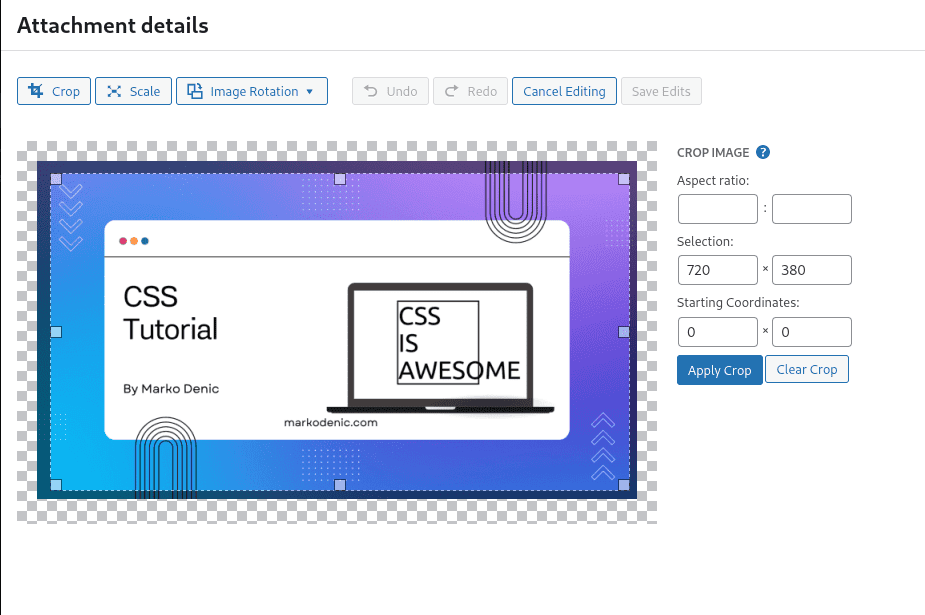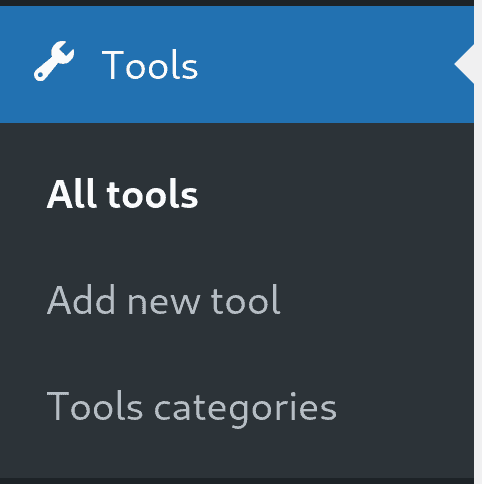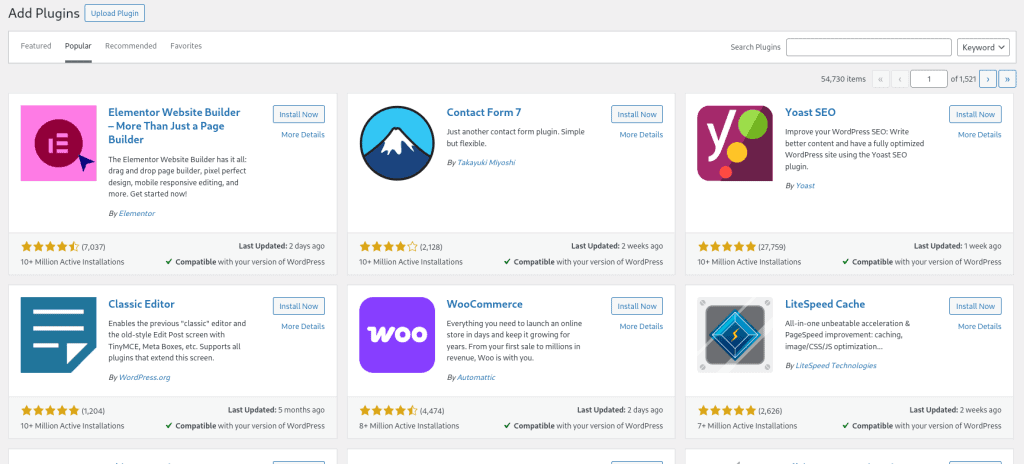Note: This is not an average list of all WordPress features. It’s a list of features I particularly appreciate about WordPress.
Let’s get started!
1. Image Editor
Super handy. It has many features. You can crop, resize, or rotate images. You don’t need to open Photoshop for small image adjustments. 🙂

2. Custom Post Types
You can use it to create any content you want. “Tool” in this case stands for a tool for my website. Here’s an example: markodenic.com/tools/tech-acronyms-explorer. You’ve probably noticed the namespace (slug) “Tools.” This is one advantage of CPTs: Each CPT has its own menu item, slug, API endpoint, etc. Each CPT can also contain custom fields. Like this one (CPT tool, created with the ACF plugin):

3. Community
There are hundreds of blogs, newsletters, and resources of all kinds for learning and troubleshooting WordPress. At the time of writing, there were over 54,000 plugins and over 7,000 themes. These are all free themes hosted in the WordPress repository. There are hundreds more premium and self-hosted plugins and themes available.

4. SEO-Friendly
WordPress already offers a lot for your SEO. SEO-friendly (and customizable) permalink structure, sitemaps (here’s the one from my blog: markodenic.com/wp-sitemap.xml), easy internal linking, and integrated RSS feeds (markodenic.com/feed/). Categories and tags are also integrated into the WordPress core and help users and search engines understand the site’s structure.
5. User Management
WordPress offers six roles by default: Super Admin, Administrator, Editor, Author, Contributor, and Subscriber. You can also add custom roles using the “add_custom_user_role” function. Each of these roles has different features that can also be customized
6. Comment System
The comment system is optional but included in the WordPress core. It includes moderation, threading, and spam control.
7. Integrated REST API
And last but not least: the REST API. I use it extensively for my blog (markodenic.com/blog/), and it works perfectly. You can retrieve practically anything:
- Posts and pages – Endpoints:
/wp-json/wp/v2/postsand/wp-json/wp/v2/pages - Categories – Endpoint
/wp-json/wp/v2/categories - Tags – Endpoint
/wp-json/wp/v2/tags - Users – Endpoint
/wp-json/wp/v2/users - Comments – Endpoint
/wp-json/wp/v2/comments - Site Info – Endpoint
/wp-json - Search – Endpoint
/wp/v2/search - Custom post types – Endpoint
/wp-json/wp/v2/tools// In this example,toolsrepresents a registered CPT slug.
Important note: For all of these endpoints, the request method is GET. There are also many other REST API endpoints you can use (full reference here: developer.wordpress.org/rest-api/reference/)
Conclusion
WordPress as a CMS offers many advantages. It’s not without reason that it’s by far the most widely used CMS on the market. At the time of writing, it had a 61.3% market share (source: w3techs.com/technologies/history_overview/content_management).
If you’re interested in using WordPress for your business, Clio Websites can set everything up for you. Contact: cliowebsites.com/contact-us/


